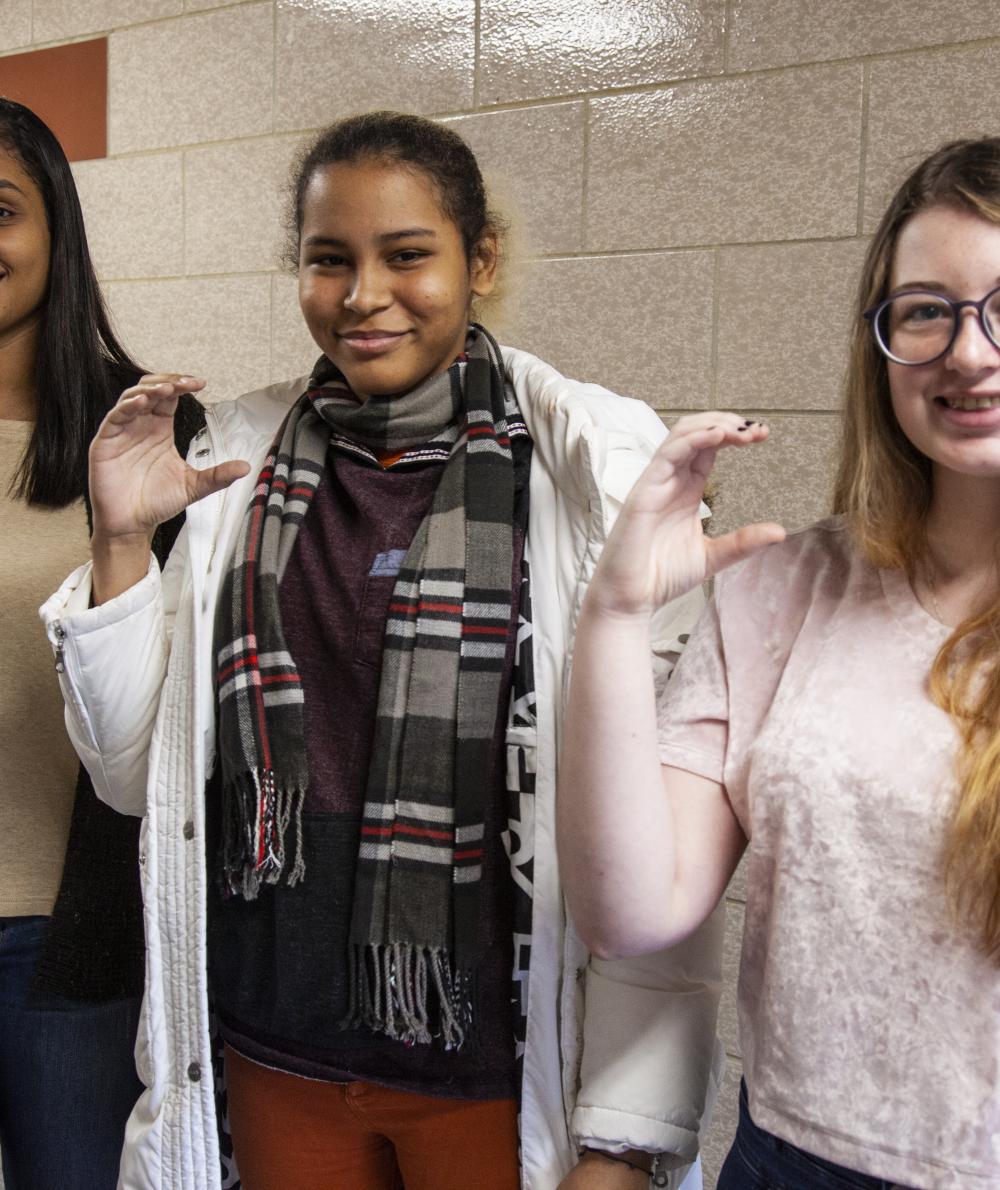Our Student Accessibility Services (SAS) is where inclusivity thrives! SAS’s mission is to ensure that the campus experience is as accessible as possible. You will have the opportunity to pursue every available opportunity related to your education, with or without accommodation. We are your dedicated hub for support, resources, and connections that ensure your need for barrier removal or accommodations are met during your time at QCC. Learn how we can help you achieve academic success today!
Your Route to Access: The Four Registration Steps
Our SAS Coordinators will have a conversation with you at the intake interview to learn more about your educational experience and history of using accommodations. If removing barriers to learning is not feasible, then the Coordinator will discuss solutions with you and then determine the accommodations which offer students with disabilities an equal opportunity to access courses, programs, activities, or facilities. These accommodations are decided case by case, considering your disability documentation, history of having a disability, and the barriers that may be encountered in the course(s) or program.
The registration process takes time, so don’t wait to apply. Once the SAS application and supporting documentation has been received, it can take a minimum of 10 business days to schedule the intake interview in order to determine eligibility for an Accommodation Letter.
Plan to connect with Student Accessibility Services early!
- Complete – Please fill out the Application for Student Accessibility Services in AIM.
- Send – Send SAS your Disability Documentation. You can upload your documents directly into your SAS Application in AIM.
- Meet – Meet with a coordinator (phone, Zoom, in-person) to discuss the nature of your disability and eligibility for accommodations.
- Request – Once your coordinator confirms your eligibility for accommodations you can customize and request your Accommodation Letter for the semester in AIM.
Need help with your SAS Application or sending your Documentation? Please utilize the "How To" documents below in the “Essential SAS Documents” area below.
Supporting the Opportunity for Success
Accommodations
Student Accessibility Services engages with you in a deliberative, interactive process to determine if you qualify as a student with a disability, identifies the barriers you may encounter in your courses, and discusses the appropriate accommodation that may provide access. There will always be a direct connection between the barrier a student experiences because of their disability and the accommodations that are approved by Student Accessibility Services. Common academic accommodations may include but are not limited to extended time on tests and accessible classrooms.
SAS offers accommodations for the placement test, but you must complete the SAS application, provide appropriate documentation, and complete the intake process with Student Accessibility Services to utilize reasonable accommodations for the placement test.
Services
Here are some of the services SAS offers students with disabilities:
- Advocacy
- ASL Interpreters
- Assistive Technology
- Assistance with Course Selection & Academic Planning
- Information & Referral
- Medical Parking
SAS Application Help
Please see below for resources to help you complete the SAS application.
Essential SAS Documents
Check out our resources below.
SAS FAQs
If your question(s) are not answered below, please reach out to Student Accessibility Services at 508.854.4471 or e-mail the office at SAS@qcc.mass.edu.
Your coordinator will introduce you to the Student Accessibility Services process for requesting a reservation in the test room (in-person or remote). All test reservations are made using the link on the Student Accessibility Services The Q page and must be made five (5) business days in advance.
aIf you are a student with a disability who would like assistance you must:
- Choose to self-disclose your disability to Student Accessibility Services
- Complete the Student Accessibility Services Application and schedule an intake/planning appointment with your SAS Coordinator.
- Provide appropriate documentation of your disability to Student Accessibility Services to support your accommodation requests.
As a faculty member, these are your responsibilities in relation to SAS:
- To cooperate with Student Accessibility Services in providing authorized accommodations and student support.
- Refer you to Student Accessibility Services if you claim a disability and/or request accommodations but provide no QCC official notification (Student Accessibility Services Accommodation Letter).
- To consult with Student Accessibility Services if there are questions about the appropriateness of a required accommodation and to discuss means and/or alternative ways to provide accommodation in a particular class.
- Academic accommodations are designed to reduce or eliminate barriers in the learning environment to ensure students with disabilities have equal access and opportunity to learn and participate fully in educational programs at Quinsigamond Community College
As a faculty member, these are the limits of your SAS responsibilities:
- Faculty have no obligation to provide accommodations when you do not provide the Student Accessibility Services Accommodation Letter.
- If you do not identify until late in the semester, the instructor is under no obligation to offer make-up exams or assignments.Instructors are only required to provide accommodations from the date that they receive the Accommodation Letter from the student.
- The faculty may not request disability documentation nor ask you to disclose the specific nature of your disability. Faculty generally cannot access disability documentation records unless special circumstances exist and the student gives permission.
FERPA
Section 504 of the Rehabilitation Act of 1973
No otherwise qualified individual with disabilities in the United States shall solely by reason of his disability be excluded from the participation in, be denied the benefits of, or be subjected to discrimination under any program or activity receiving Federal financial assistance.
Section 504 of the Rehabilitation Act of 1973 is still in effect and it contains (in Subpart E) more specific information regarding post-secondary education than the ADA (Americans with Disabilities Act). Section 504 of the Rehabilitation Act of 1973 is under the jurisdiction of the Department of Education.
Provisions of Section 504
Quinsigamond Community College as a public institution of higher education that has received federal assistance is legally bound to prohibit discrimination in the recruitment process and the educational process of students with disabilities. Students with documented disabilities are entitled to receive approved modifications, appropriate academic adjustments or auxiliary aids that will enable them to participate in and have the opportunity to benefit from all educational programs and activities at QCC.
Under the provisions of Section 504, Quinsigamond Community College may not:
- Limit the number of otherwise qualified students with disabilities admitted;
- Make pre-admission inquiries as to whether an applicant is disabled;
- Exclude an otherwise qualified student with a disability from any course of study;
- Provide less financial assistance to students with disabilities than is provided to non-disabled students, or limit eligibility for scholarships on the basis of disability;
- Counsel students with disabilities into more restrictive career paths than is recommended to students who are non-disabled;
- Measure student achievement using modes that adversely discriminate against a student with a disability;
- or Establish rules and policies that have the effect of limiting participation of students with disabilities in educational programs or activities.
Americans with Disabilities Act (ADA)
The Americans with Disabilities Act of 1990 is civil rights legislation that affects 43,000,000 Americans with disabilities. The purpose of the act is to provide a clear and comprehensive national mandate for the elimination of discrimination against individuals with disabilities. The ADA applies to all institutions of higher education regardless of federal funds. ADA is under the jurisdiction of the Department of Justice.
Title II: Title II of ADA is divided into two subparts. Subpart A requires that state and local government entities and programs be made accessible to persons with disabilities. Subpart B requires that public transportation systems be made fully accessible to and usable by persons with disabilities.
Title III: Title III of ADA covers the accessibility and availability of programs, goods, and services provided to the public by private entities.
Faculty is not responsible for requesting documentation. In fact, faculty generally do not have access to such records unless special circumstances exist and the student gives permission.
We’re Here to Help!
If you have questions about whether you have a disability, questions about your documentation, or would like further information about our services and disabilities, please reach out.




